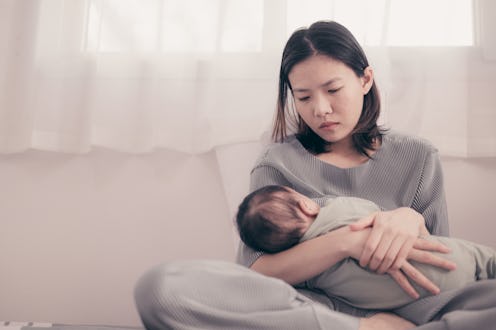News
NHS England Announces Plans To Better Support New & Expectant Mums
New mental health hubs will provide specialist care from before pregnancy until the baby is two.

Mental health treatment and help for expectant and new mothers will be provided at specialist perinatal mental health centres from April, BBC News reports. Part of the NHS’s Long Term Plan published in 2019, these hubs will offer physical health checks, and psychological therapy from before conception, during pregnancy and birth, until the baby’s second birthday.
According to the NHS, up to 20% of new and expectant mums in England experience mental health illnesses covering “a wide range of conditions”. Statistics also show over 30,000 women were seen by perinatal mental health specialists between 2019 and 2020.
By integrating “maternity, reproductive health and psychological therapy for women experiencing mental health difficulties,” the NHS aim to provide treatment for about 6,000 patients in the first year of the new outreach clinics being established. The overarching aim is to offer this care to at least 66,000 people by 2024.
Five years ago, 40% of communities in England had no perinatal services or specialist teams to provide the support and care needed. There are currently maternity services available in each of the 44 NHS local districts, as well as specialised perinatal mental health teams.
The new hubs will add to these services, with the first 10 expected to open “within months”, according to BBC News. The rest will be “up and running by April 2022”, and all local NHS areas are expected to have a specialised clinic by April 2024.
“Every woman has a unique experience with pregnancy and motherhood, and some will need extra support to cope with mental health issues that can range from anxiety to severe depression,” Claire Murdoch, NHS England’s national mental health director said in a statement, per BBC News.
“I would encourage any mum who needs this support to come forward safe in the knowledge that her mental health and wellbeing are of paramount importance, and she should not feel ashamed of accessing the help she needs.”
This article was originally published on